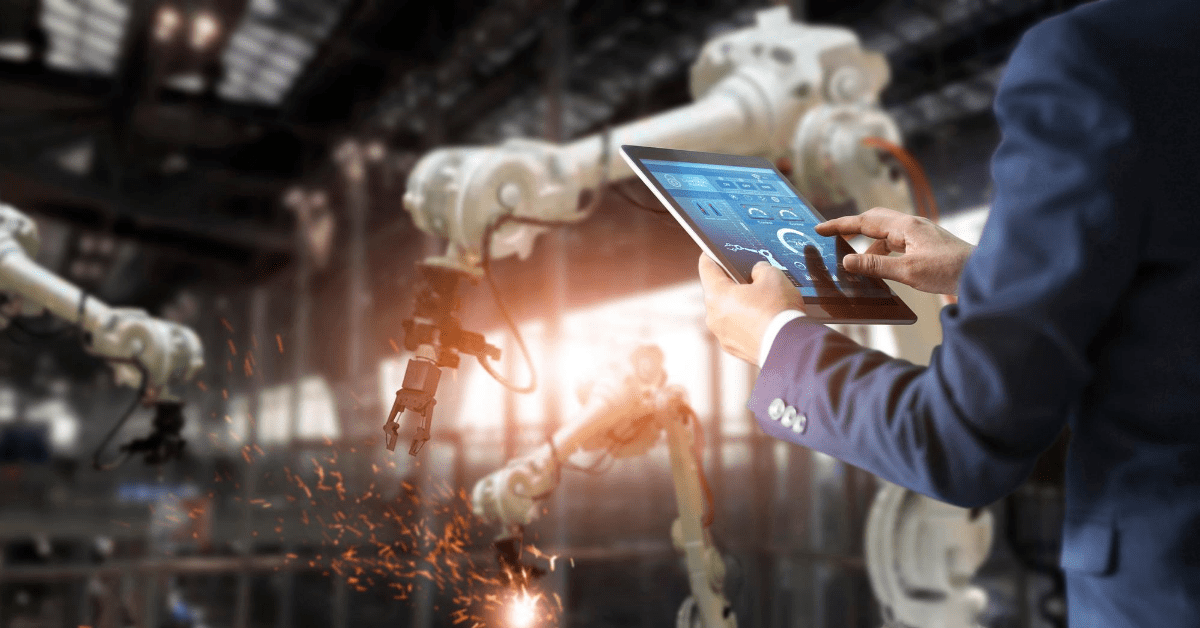Scaling up production. It’s a simple and straightforward term for a task that is often anything but simple and straightforward. Increasing production is a complex process that, in reality, means a lot more than just ‘producing more’.
Automation and scaling up
Automation is the most obvious and most effective way to scale up production. However, implementing automation takes time and investment to get it right, and there are various obstacles that have prevented UK manufacturers in implementing automation on a wide scale.
In the current climate with the COVID-19 crisis ongoing, manufacturers are under pressure to dramatically scale up production of items like PPE, medical devices, and even vaccines. With the UK generally lagging behind the rest of the world in terms of automation implementation, manufacturers are now ramping up the focus on automation to meet these increased demands. Companies who already had extensive automation in place – like Dyson- were able to take the government contracts for producing much-needed equipment quickly.
However, companies without automation already in place are looking to have machines built for automation in a matter of weeks, which is unrealistic. The current demands to increase PPE production cannot be temporary, as it would be expensive and unrealistic to automate quickly for a temporary surge in demand. Attempting to get automation in fast for a short-term process is not just expensive; it is the wrong strategy entirely.
The challenges of scaling up
Many challenges come with scaling up, including:
- Supply chains. The ability to create more product means being able to procure more raw materials within the right timescales. You’ll also need the right distribution infrastructure in place.
- You need skilled workers that can program and maintain your robots. You also need the expertise to review your processes, resolve any flaws, and identify how they may need to be adapted for automation.
- The equipment itself needs to be designed and installed. It can be costly, and it’s essential to get the design and requirements right to avoid expensive mistakes.
- One of the social challenges of scaling up via automation is the impact it has on the workforce. As it decreases labour requirements, it raises the question of how society needs to manage this moving forwards. AI and automation are likely to replace many jobs across industries in the not very distant future, and putting strategies in place to handle this–for example, a living wage for all–will need careful consideration.
Automation to future-proof UK manufacturing
The current calls for collaborative working are a good thing, but we need to be focused on the future and how automation plays a role in the sustainable long term future for UK manufacturing. Automation is key to ensuring manufacturers are better prepared in the future to deal not only with a sudden increase in demand but to remain generally competitive. It is a long-term strategy that is incredibly effective when it is implemented alongside a full business plan with fully scoped costs and benefits and clearly defined automation processes.
Rather than focusing on an immediate and short-term push to scale up, focusing on helping companies automate effectively for the long term ensures that we are future-proofing the manufacturing industry. This will mean manufacturers are better able to cope with sudden fluctuations in demand and support national needs that may arise.
Current manufacturing cannot be business as usual, and automation implemented correctly will ensure longevity in UK manufacturing. Indeed, keeping the manufacturing industry thriving in the UK means focusing on implementing manufacturing technologies at a much greater pace than we have done previously.
As experts in automation solutions, we understand the challenges and barriers that manufacturers are currently facing. Our collaborative approach can help guide you towards the perfect automation solution for your business. Please contact us for more information and to discuss your requirements with our automation consultants.




